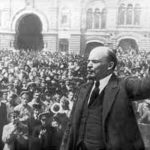Third and last part of Dunayevskaya’s presentation on “Hegelian Leninism.” Here, the author deals with the transformation into opposite of the 1917 Russian Revolution, Lenin’s seven last years (1917-1924), and what has happened with Marxism and Socialism since then, including her critique to the thought and practice of Mao Zedong.



